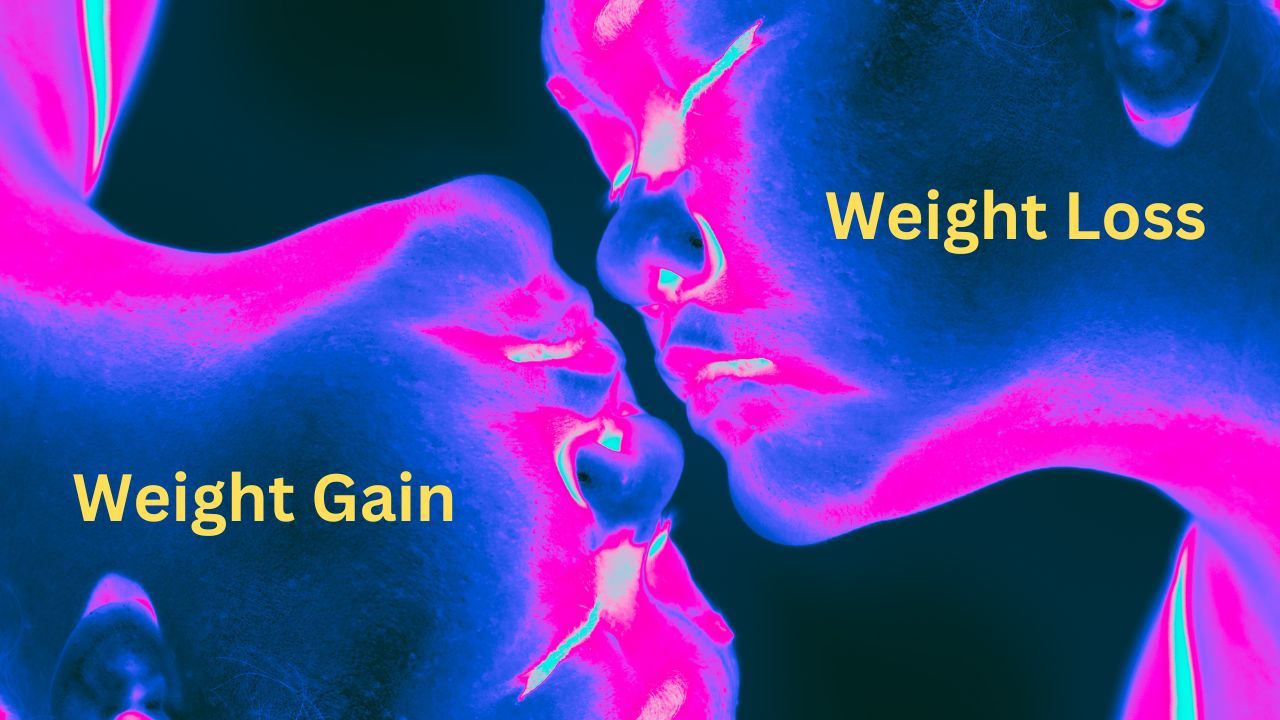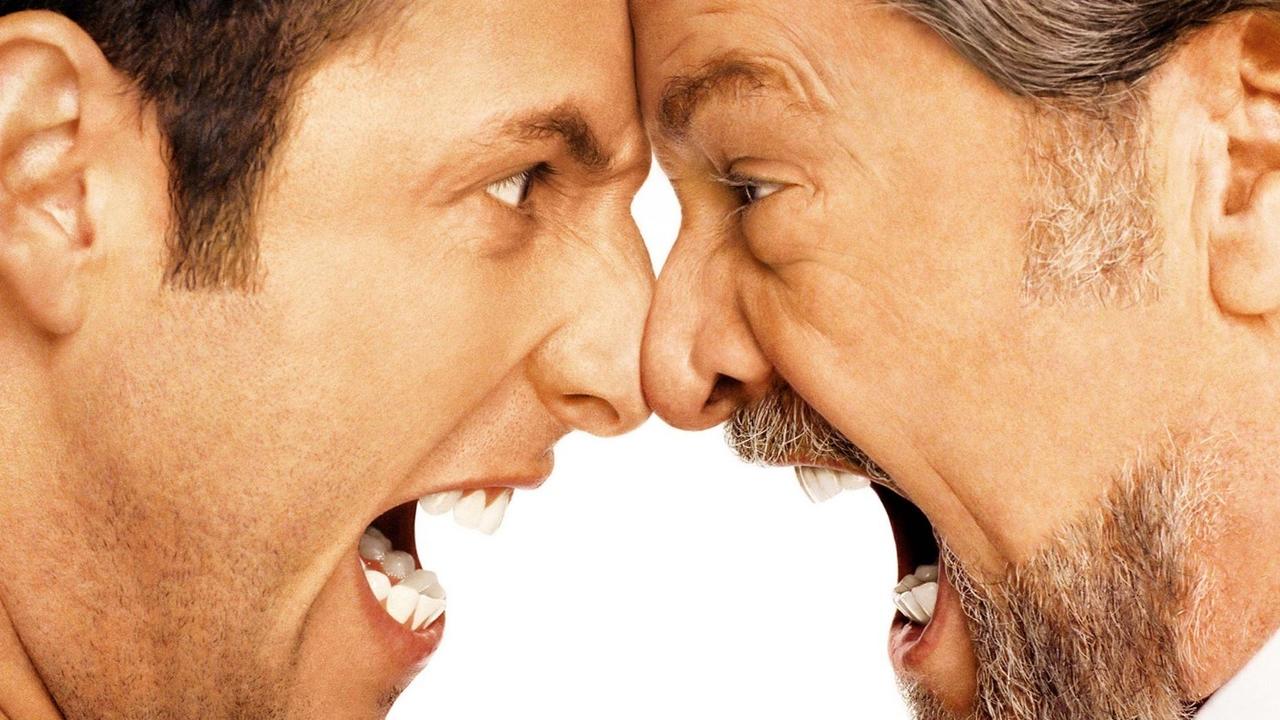What part of the mind causes weight loss and weight gain?

You and I are not the only ones trying to lose weight. According to some studies, there are about 150 million American adults who are overweight, obese, or severely obese. Out of those, only 60 million of us are actively working on losing weight and remodeling the body, unfortunately not with much success.
People start diets and exercising, but eventually drop out of the program. The big question is: Why? Why do we drop out of the program?
There are some physical and some mental reasons why people drop out of their chosen method to adjust their bodies. One of the most potent motivators of human behavior is hunger. Hunger can cause a person to actually kill; in fact we kill animals, we kill plants to eat and satiate hunger.
Hunger is an extraordinarily powerful motivator of behavior. When we are hungry enough, long enough, we eat anything. We end up eating excess food when we are hungry because the logic of the body is “I've been going hungry for so long, I better eat up a lot...
How to Stop Emotional eating for Good

Overcome emotional eating and only engage in mindful eating. Intuitive eating may not be the best choice at first because we are conditioned to eat unhealthy foods, instead of having clean nutrition. A healthy lifestyle includes appetite control; this will lead to permanent weight loss, weight adjustment and complete body reshaping. This is most important for health, and even for mental health. This is true mindfulness. This is how you overcome emotional eating and lose weight permanently.
There will be a shift in consciousness, coupled with a growth mindset, that will even help you reverse aging. At the core of men’s health and women’s health is effective nutrition, which makes you fit for life.
Yes, the mindset that leads to body recomposition required me to change my mind, adjust my mindset, and redesign my self-image. How do I control appetite? How do I overcome mindless emotional eating? How to stop emotional eating? Using hypnotherapy for weight loss. This is the...
Healing the pain of deep betrayal

We have all been hurt and betrayed in one way or another sometime in our lives. When we are hurt and betrayed there's a natural response or reaction that is quite involuntary: we close and cringe. This would be analogous to what happens when a person touches a very hot surface: there is an involuntary response that causes you to quickly move your hand away.
The nervous signal that causes us to snap our hands off the hot surface does not go up to the brain initially. We feel the pain later because the signal travels through a different nerve fiber to the brain, only then we become aware of what happened. The initial reaction is to move the hand, with no thought involved, and no awareness of the heat; the body does that to protect itself from tissue damage. It is this lack of initial awareness of potential damage to the hand that reflects the unconscious nature of reactions.
Just as in the hot surface example, emotionally we also quickly snap away from situations that are hurtful to...
SOME THOUGHTS ON HYPNO-ANESTHESIA

SOME THOUGHTS ON HYPNO-ANESTHESIA
Perhaps one of the most impressive demonstrations of the power of the mind is that of anesthesia. Hypnotists have traditionally pierced the cheeks, pinched to the point of bleeding, and immersed the hands of hypnotized people into freezing water for extended periods of time. These “experiments” have been carried out in laboratories, under controlled conditions, and by stage hypnotists alike, all apparently without eliciting much reaction from their subjects. Clearly, the view of actual blood dripping from a hypnotized person who is not screaming with pain must be impressive to those watching hypnosis shows.
The term “hypno-anesthesia” refers to the induction of anesthesia using hypnosis. Hypnosis is a mental state of connection between the conscious and unconscious portions of the mind. Finally, “anesthesia” comes from the Greek and can be translated as “absence of sensation”.
Medical anesthesia...
Do not manage anger, cure it!

A few years ago Jack Nicholson and Adam Sandler made history with another great movie: Anger Management. In that movie Mr. Nicholson plays the part of an odd therapist who helps people with anger problems. He explains to his protagonist client played by Adam Sandler that anger is not just something you experience episodically, but an illness that one may or may not have. In fact the movie compares anger to diabetes.
There is no doubt that anger serves an evolutionary purpose by boosting strength through what has come to be known as the fight or flight response. In extreme situations of danger or injustice, anger can get one to act in adaptive ways that lead to survival.
The utility, or perhaps the unavoidability of this type of episodic anger is well recognized both in therapy and in the legal system. In the therapeutic context you may hear terms such as justified anger or situational anger. In the legal context there are instances where temporary insanity by virtue of...
What is DE-Hypnosis?

Hi, my name is Flavio; I am a de-hypnotist.
The name of my occupation is not simply a new spin on an old idea; it more accurately represents what we actually do. It may be easier to understand this if we start at the beginning.
If nothing had ever happened to you, you would be totally innocent like a happy baby, but you would lack the wisdom of the serious adult you are.
Ideally then, all life experiences should make us wiser, but in practice that is not what happens. It seems that pain hurts more than pleasure pleases, about five times as much in fact, according to scientists. Consequently, we seem to be willing to invest much more energy into avoiding pain than in obtaining any sort of benefit.
The emotional impact of a negative life lesson can be so devastating and painful that we forget, or rather, archive those memories, emotions and lessons learned in a part of the mind where they serve the intended limiting purpose, while freeing everyday thoughts for more immediate concerns....
How to live a life you love
How to a life you love
Flavio Ballerini, Ph. D.
- What life would you love to live?
This is a good place to begin: the beginning is a definition of what the life you would love to live looks like to you. In general, an awesome life is awesome because we feel that we excel and succeed in four domains: Relationships, prosperity, health (energy and vitality), and vocation (as in doing work that you love to do and matters to you).
Think about it: if you wake up with a spring in your step, next to a person you love, respect, admire and genuinely want to be with; if you have a satisfactory sex life with that person, and if you can plan your day according to what is actually important to you, instead of basing it on what your income allows you to do, how can you not love that? Add to that the ability to move, run, carry things (such as babies and grand-babies) and the certainty that your contribution to the world matters, for sure you will love that life.
- The...



